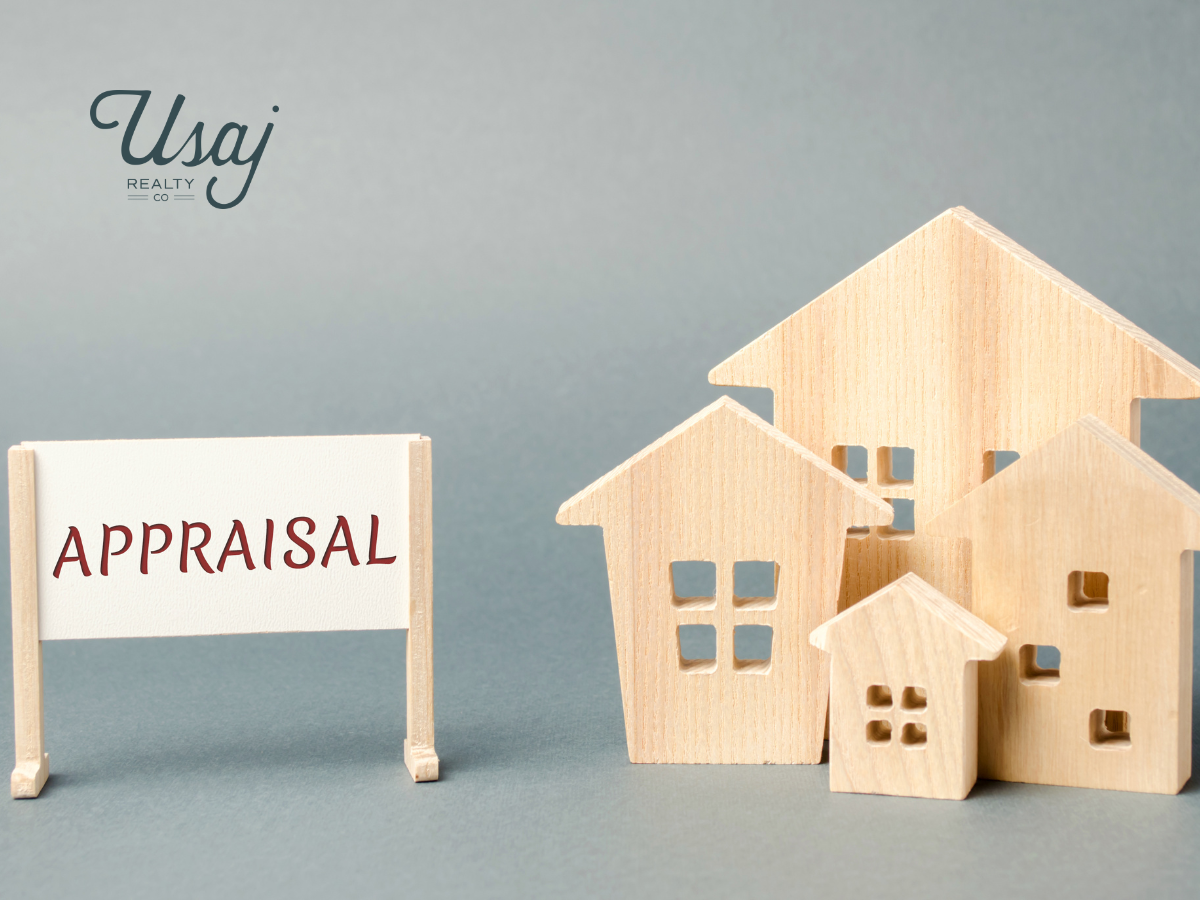How Home Appraisals Can Make or Break Your Purchase
Getting a home appraisal is one of the necessary evils when it comes to buying a home. Next to actually getting your loan approved, it’s probably the most anxiety-producing element of your home purchase.
Unless you are making a cash offer on a home, you’ll have to obtain a loan. And part of getting that loan approved requires a home appraisal. Regardless of the under contract price you’ve agreed to, the lender will require a home appraisal to verify the appropriate value of the home. In turn, this amount will dictate how much of a loan the lender will approve for you.
What exactly is a home appraisal and what goes into establishing a home’s value?
What is a Home Appraisal and Why is it Necessary?
A home appraisal is required by a homebuyer to fulfill the requirements of a mortgage lender. This is done once a property is under contract. The appraisal is necessary to confirm that the sales price is fair to everyone involved: the buyer, the seller, and the lender. The lender needs assurance that the property is valued appropriately in order to approve the requested loan amount.
When a home appraisal is conducted, the appraiser is looking at a multitude of factors in determining the home’s value. In addition to examining the comparable properties that have sold in the immediate area, they consider the following: zoning, lot size, location, utilities, home characteristics, square footage, number of bedrooms and bathrooms, basement/crawl space, unique features, general condition of the property, outdoor spaces, etc.
If the buyer plans to use cash on the purchase of the property, oftentimes they will waive the home appraisal. Since a lender isn’t involved in the process, the buyer can speed up the closing process, thereby making their offer more appealing to the home seller.
What Elements are Evaluated in a Home Appraisal?
Location
Is the home on a busy street or tucked away on a quiet cul-de-sac? Are there nearby convenience or grocery stores, gas stations or parks? Is the home in an urban or suburban setting? A home located in a popular neighborhood with low inventory is likely to sport a higher value than a similar home in a less desirable area.
Square Footage
Make sure you have an accurate measurement of all the living areas of the home. Discrepancies can impact your home value which in turn may affect the amount of money a seller will take away from the deal. For the buyer, the square footage is an important component of the amount of property taxes paid each year.
Property Condition
Verifying that proper maintenance has been performed on the home is important to the homebuyer, especially with items that are related to safety. A dilapidated roof, old windows, aging HVAC system and antiquated hot water heater will not bode well for a home appraisal. The seller should be prepared to either fix and/or replace systems that are having issues or be prepared to negotiate the price. Even in a sellers’ market, a buyer may not want to take on repairs that have a hefty price tag.
Living Space
The number of bedrooms and bathrooms is a key determinant of home price. Most families or people planning to start a family will have specific requirements on how many sleeping quarters they need as well the number of bathrooms. Make sure specific rooms have a specific purpose.
Unique Features
It goes without saying, all homes are not created equal and outward appearances can be deceiving. Just because you live in a 1950s ranch doesn’t mean the interior is still stuck in the 20th century. Home improvements increase the home value.
In this era of high tech, many homes have become “smart homes,” featuring an assortment of amenities that can greatly enhance a home’s value. Those highlights may include something as simple as automated window coverings and security systems or more elaborate additions like escape rooms and media centers.
Market Trends/Sales in your Neighborhood
In most cases, the best comps for determining the value of your home come from examining recent sales of similar homes in the neighborhood. Depending on the area, relevant comps may be found within a few blocks of the property. In other situations, the net may have to be cast in a larger area. Many custom or unique homes positioned in neighborhoods that don’t reflect similar features can make for a challenging appraisal.
The Appraisal Gap and What it Means to the Home Seller/Buyer
Be aware there are some situations where the appraisal price comes in lower than the agreed-upon price. This is especially true in a fast-paced sellers’ market where appraisals can’t keep up with average and median sales prices that keep rising. This appraisal gap is the difference between the appraisal and the contract price. To cover the difference, the home buyer agrees to provide cash to cover that gap.
Home sellers love seeing this language in the contract because it makes the contract very competitive and the ultimate sale less likely to fall through. The home buyer will have to decide how much money they are willing to offer up as the “gap coverage.”
Adding an appraisal gap to your offer tells the seller that even if the property appraises for less than the purchase price in the contract, you are committing a preset dollar amount to make up for the shortfall. This is important because it’s common to go over the asking price in a bidding war, and even though you say you will pay a certain amount, the bank will not lend you more than the appraised value of the home. This means you have to have the cash on hand to make up the difference.
Example of an Appraisal Gap
A home is listed at $500,000 and you decide to offer $510,000 with a $10,000 appraisal gap. That way, if the home only appraises for $500,000, the seller still gets $510,000. In this scenario, you would bring $10,000 cash to cover that gap in the contract price vs. the appraisal price. If the home appraises for $510,000 or above, you do not need to bring any gap coverage cash to closing.
Extra Cash Needed
Keep in mind that the cash to cover the appraisal gap is separate from the down payment. And as a result, it’s additional cash funds the home buyer needs to allot.
This can prove to be a bit of a gamble since the buyer won’t know for sure if they have to use the money until after the appraisal. There is a chance they could offer an appraisal gap and never have to use it. But, the buyer must have the money ready in the situation that the appraisal gap is enacted. Remember, there needs to be a discussion upfront between the buyer and real estate agent when bidding on a home – especially if you’re bidding over the asking price.
Options When Writing an Offer
In Denver’s incredibly competitive seller’s market, home buyers must anticipate a multiple offer situation. As a result, an appraisal gap is a handy and almost necessary inclusion in a contract offer. Be sure to determine how much cash you have available to cover the difference between the appraisal and the contract price.
If you are making an offer on a home that’s been on the market for a few weeks, you may be able to get by without an appraisal gap. Make sure you discuss the scenarios with your broker to help you determine the best game plan.
The home appraisal should always be in the back of your mind when determining the asking price on your property. Examining the comparable sales on homes in your neighborhood is just one component of establishing the price. Each home has its unique features and it’s critical to highlight and focus on the improvements you’ve made and how they impacted the pricing.




